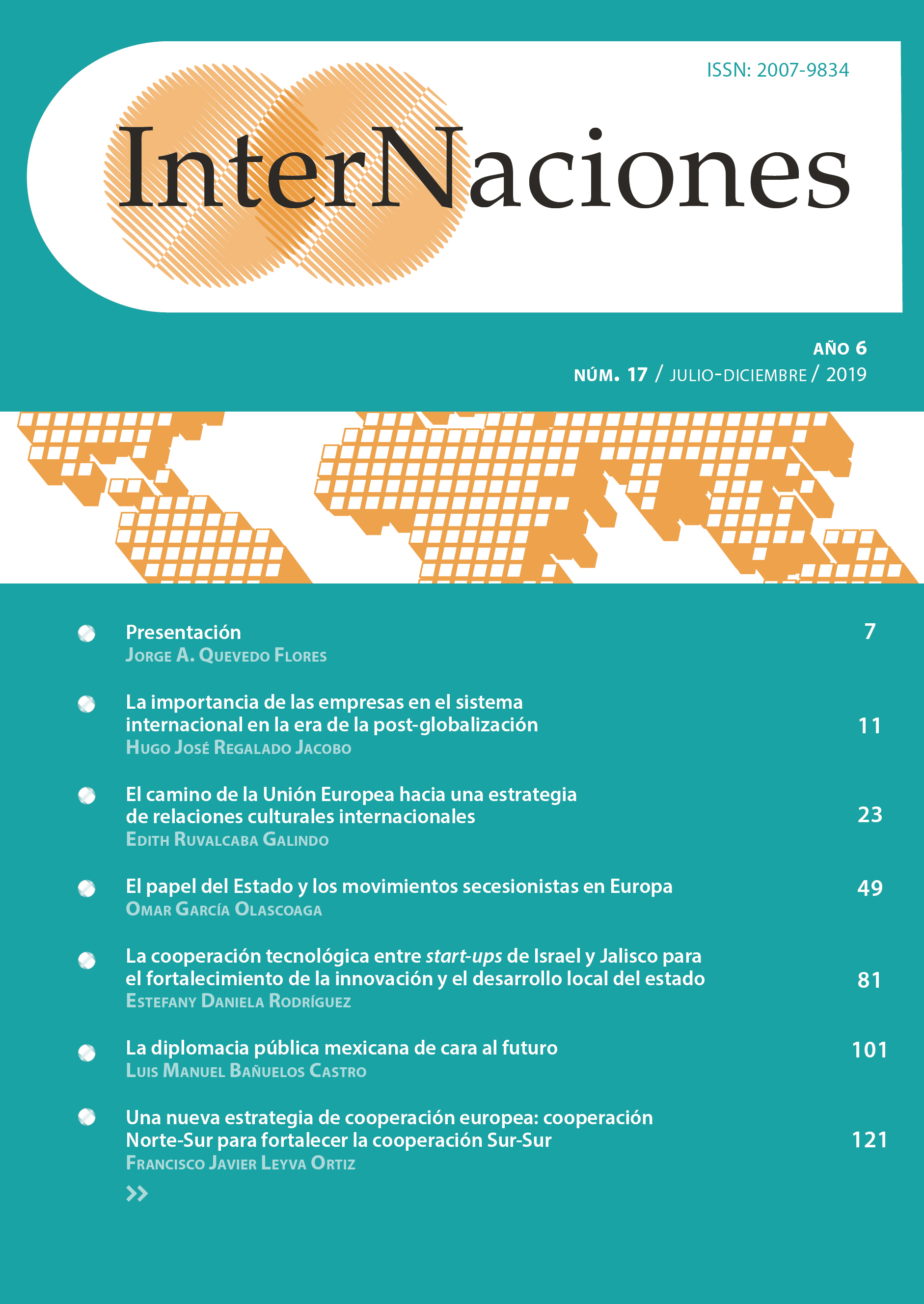The role of the State and the secessionist movements in Europe
DOI:
https://doi.org/10.32870/in.v0i17.7123Keywords:
secessionsits movements, independence, separatism, nationalism, EuropeAbstract
The secessionist movements in Europe have placed in the center of the political debate the role of the State as a hegemonic actor in the world. Despite its gradual weakening in globalization, the State still has two basic capacities: fiscal and coercive. The struggle between the independence movements and the State takes place in the doctrine of International Law, where the principles of self-determination of peoples and territorial integrity are contrasted. Currently, nationalisms have stimulated secessionist claims in Europe, which are motivated by economic, cultural or political issues. This paper presents two paradigmatic cases to examine the role played by the State regarding the independence of these movements in Europe: on the one hand, the decline of Padania in Italy and, on the other, the rise of Catalonia in Spain.Downloads
Downloads
Published
How to Cite
Issue
Section
License
Copyright (c) 2019 Universidad de Gudalajara

This work is licensed under a Creative Commons Attribution-NonCommercial-ShareAlike 4.0 International License.
CC BY-NC-SA 4.0 https://creativecommons.org/licenses/by-nc-sa/4.0/



























